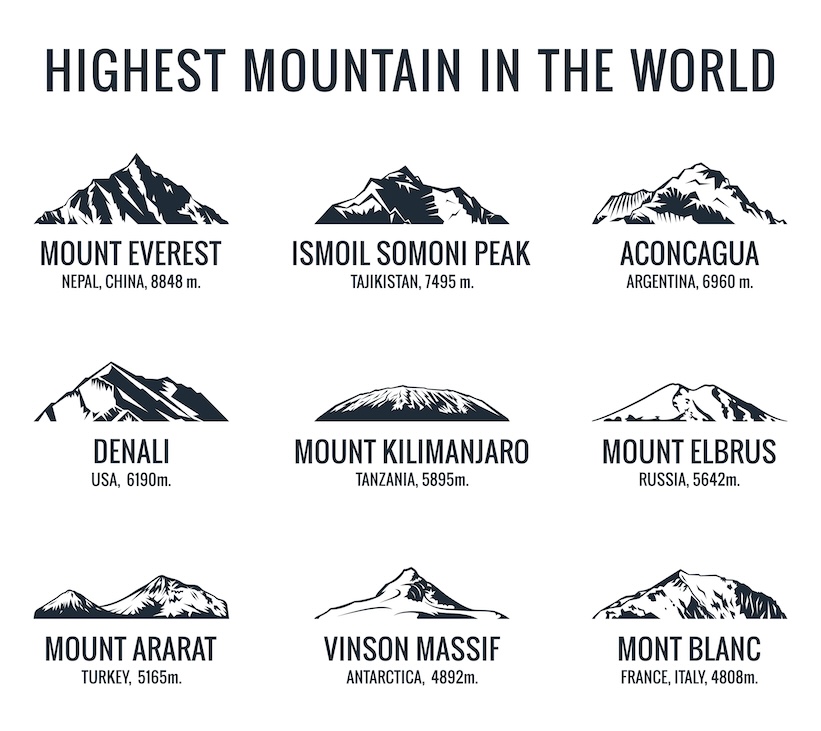Oxygen at Altitude is a Major Consideration in Wilderness Medicine
Wilderness MedicineWilderness medicine covers an enormous area of study and practice. From anaphylaxis to zoonotic diseases, it covers a lot of glossary. From deep-water diving to high-altitude mountaineering, it covers a lot of territory including oxygen deprivation.

Mountain tourist vector logos set. Adventures Icon mount. Highest mountain in world. Everest and Ismoil Somoni Peak, Aconcagua, Denali, McKinley, Kilimanjaro, Elbrus, Ararat, Vinson Massif, Mont Blanc
In this post about wilderness medicine, we focus on four terms in that glossary to which every outdoor educator and backcountry/wilderness guide should be aware:
Oxygen is a gas comprised of two oxygen molecules bound together (O2), that’s essential for the survival of most earthly lifeforms. You can live without food for several weeks, without water for several days, but only a few minutes without oxygen.
Atmosphere is the gaseous mass that surrounds a celestial body like Earth. Earth’s atmosphere is composed of about 78 percent nitrogen, 21 percent oxygen, 0.93 percent argon, and 0.04 percent carbon dioxide, along with trace amounts of other gases and variable water vapor. This gaseous “envelope” is divided into layers ranging from the troposphere to the thermosphere, with the percentage of oxygen remaining the same in each of those layers. (more…)
TALK TO US
Have any further questions about our courses, what you’ll learn, or what else to expect? Contact us, we’re here to help!